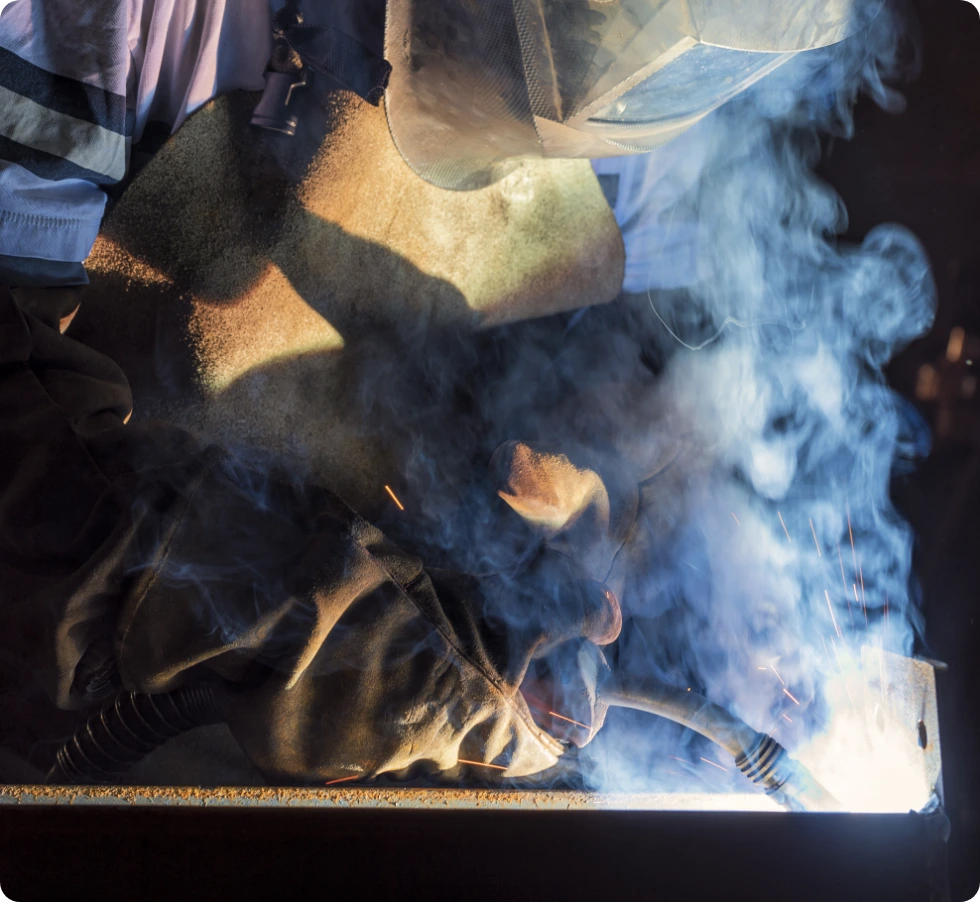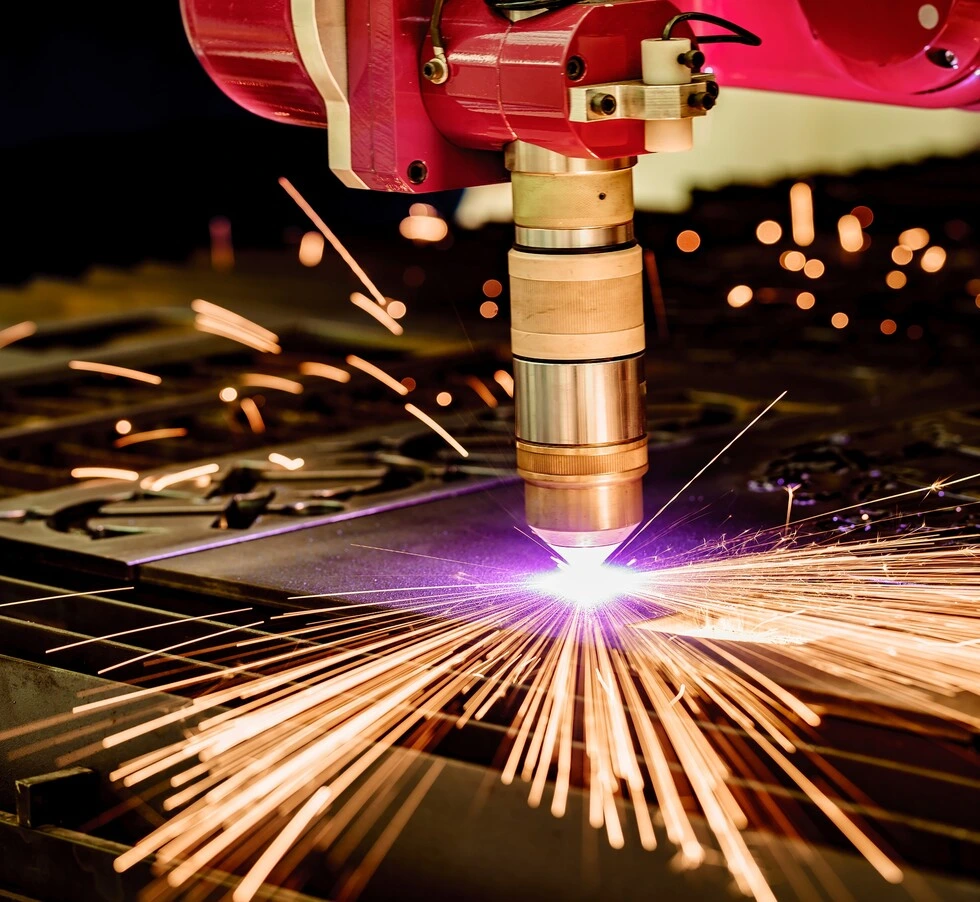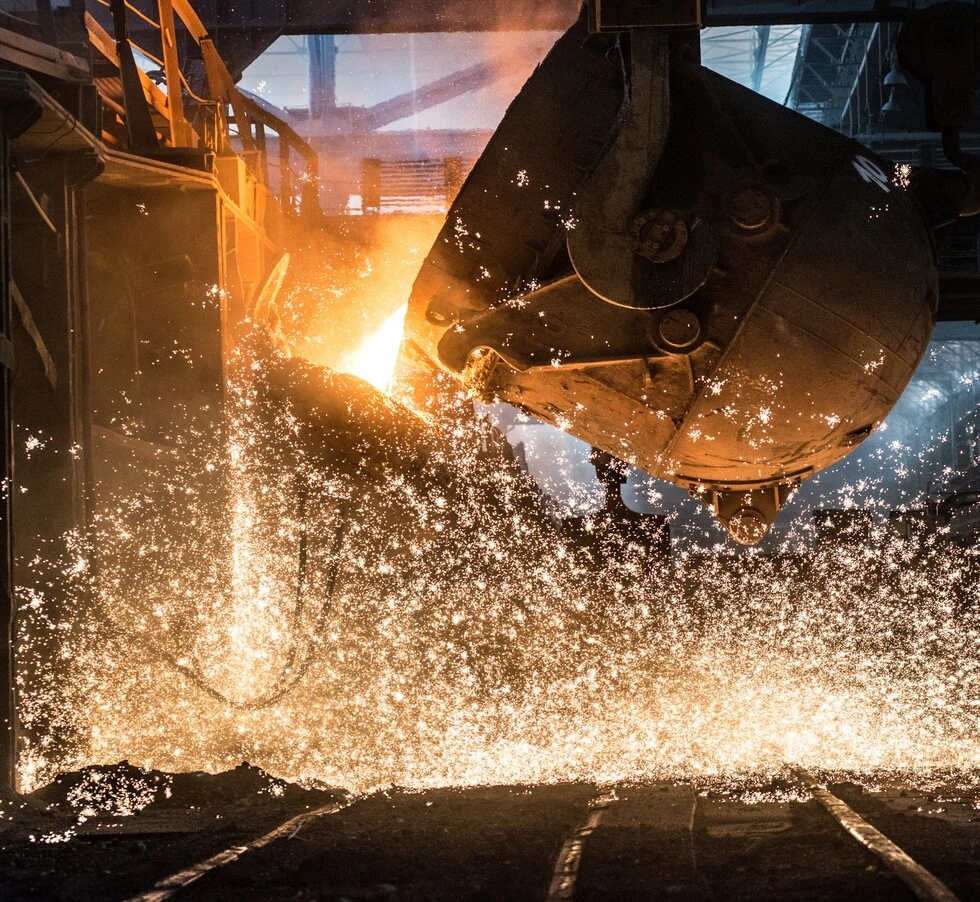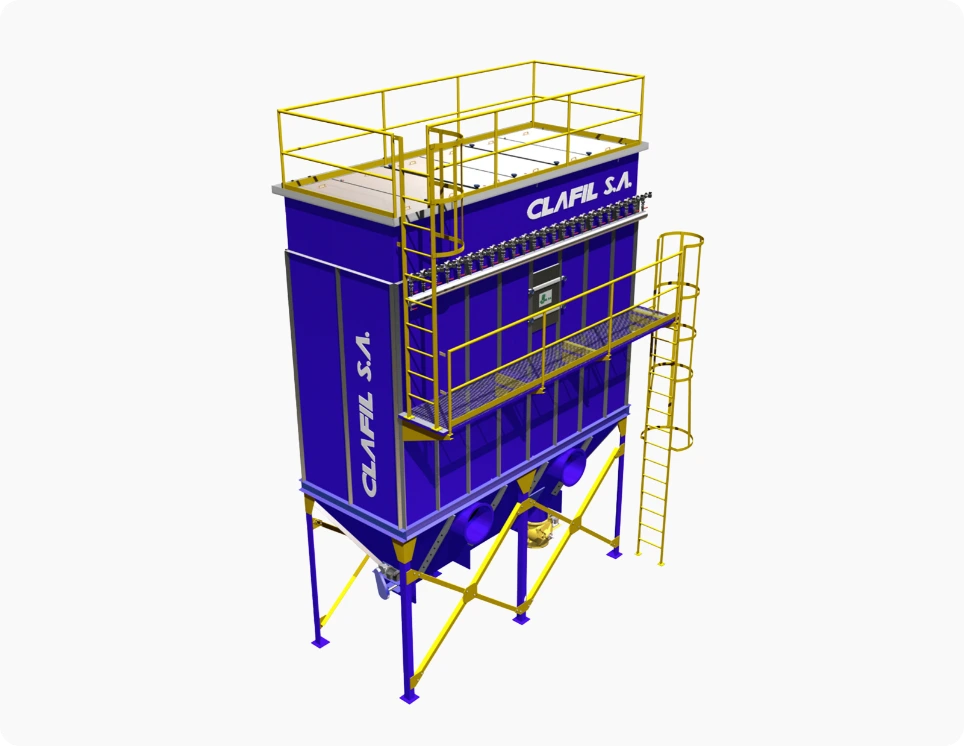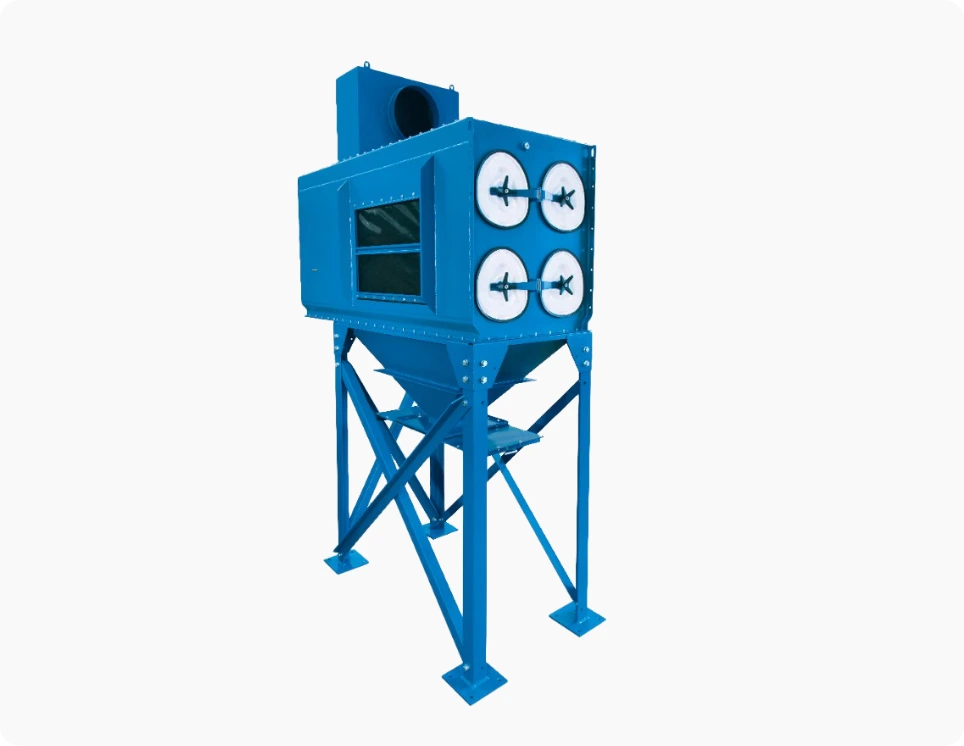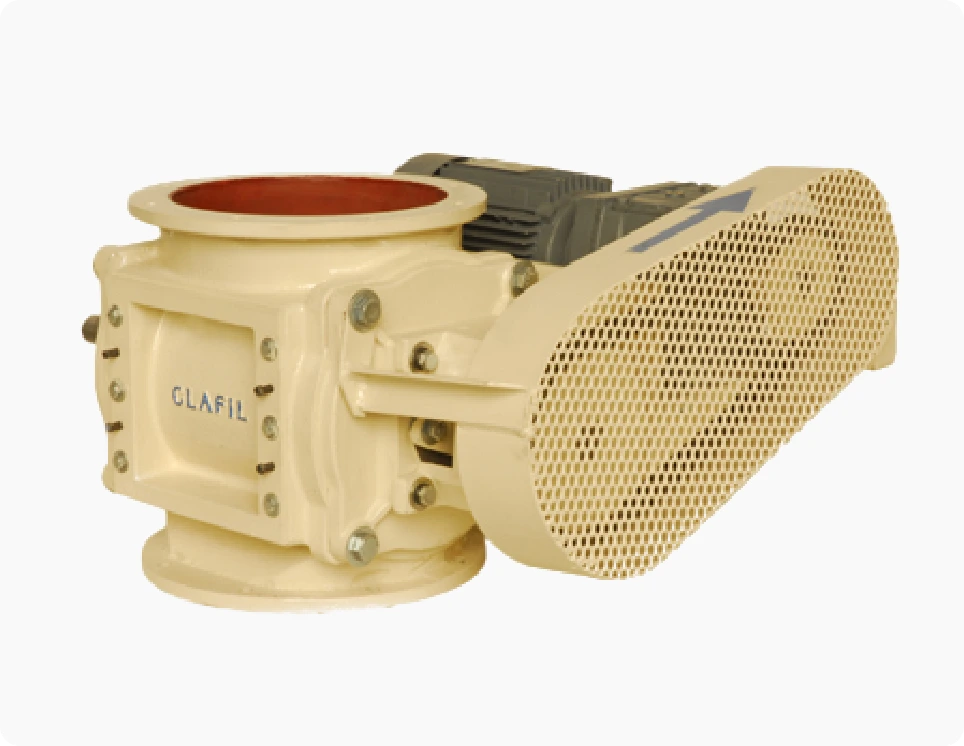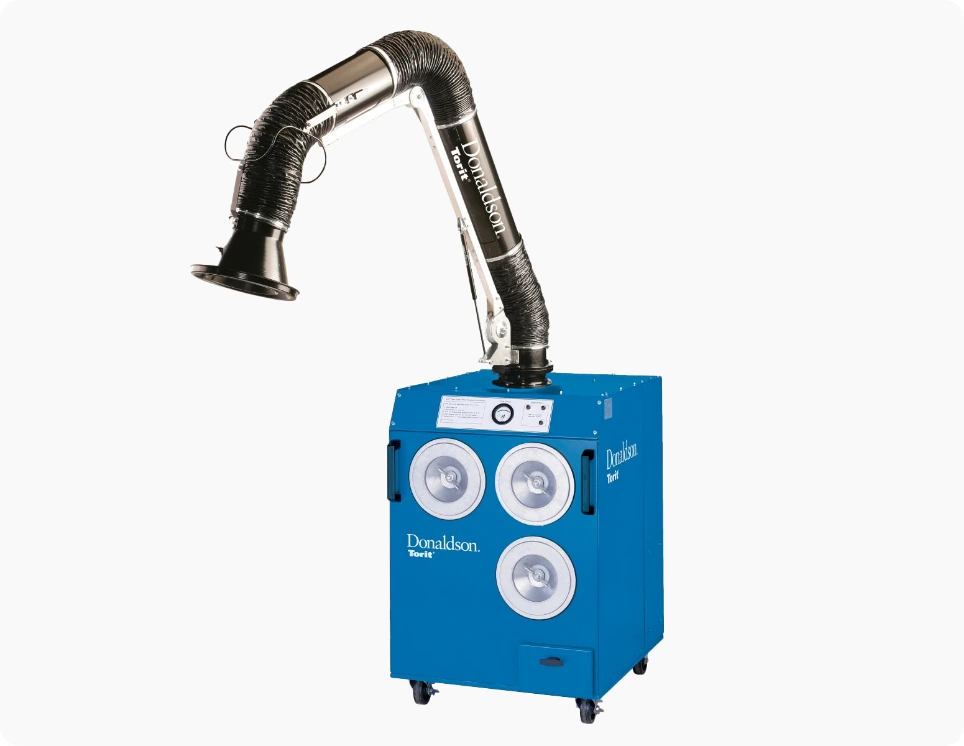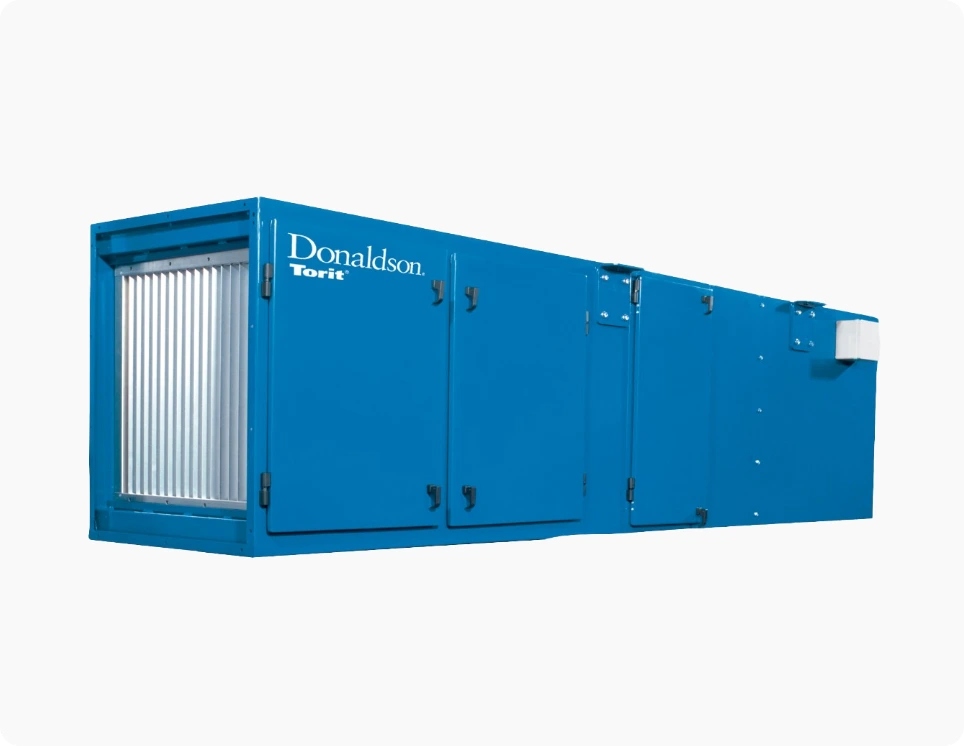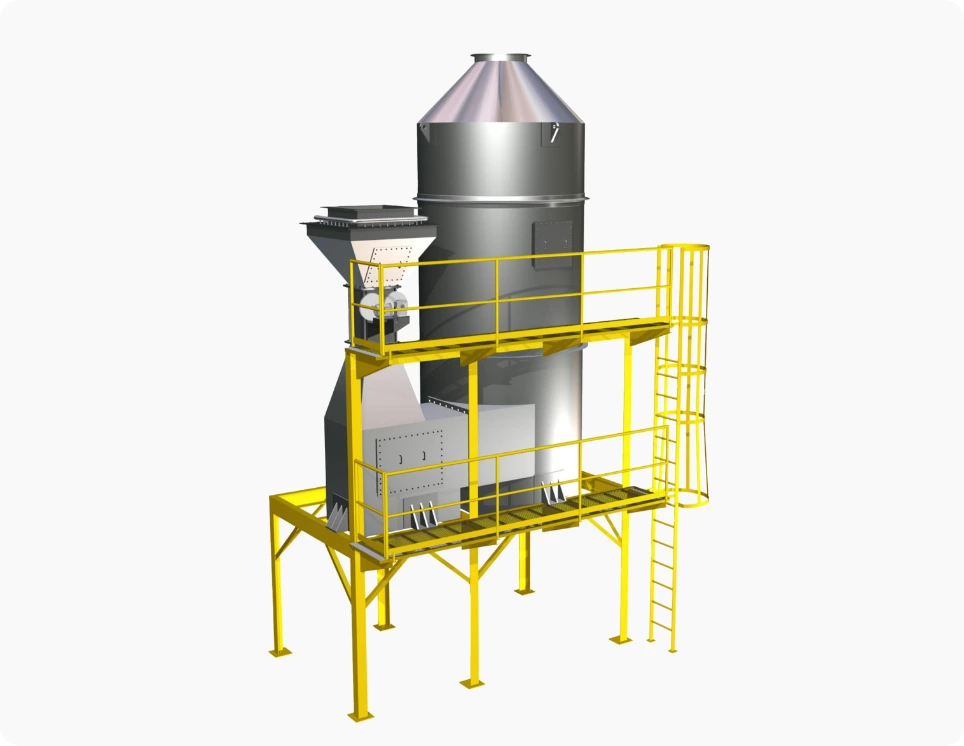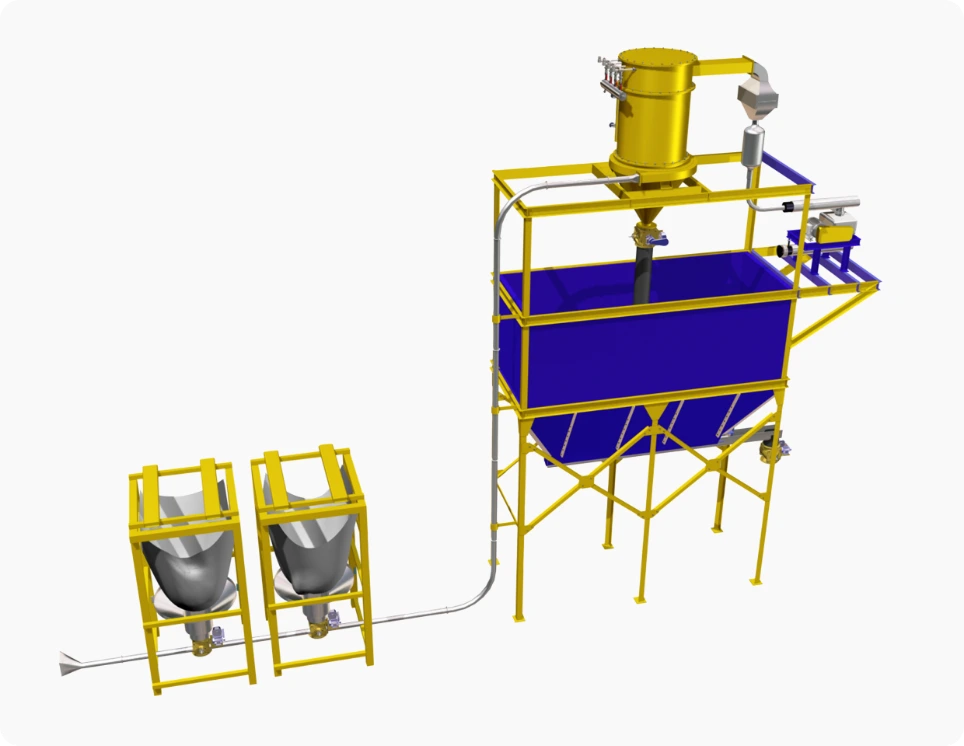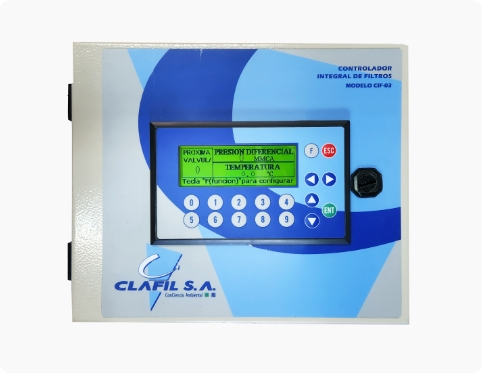Machining operations and mechanical cleaning of metals generate a variety of abrasive and heavy particles that require efficient dust control systems to maintain a safe working environment and avoid machine wear. Common applications include shot blasting, grinding, polishing, cutting, and other forms of metal processing.
Mechanical cleaning processes can involve different techniques that produce heavy and abrasive particles. Here are some typical applications where dust collectors play a key role:
- Abrasive blasting: For cleaning and preparing metal surfaces.
- Brushing and sanding: Used for surface finishing and preparation.
- Grinding: Key process for finishing metal parts.
- Drum mills: Which generate abrasive particles during milling.
- Thermal spraying (metalizing): This coating technique generates fine particles that can pose health risks if not properly controlled.
- Welding and plasma or laser cutting: These processes generate not only dust particles but also fumes containing harmful gases like carbon dioxide and ozone.
- Wet machining: During the use of coolants in machining processes, mists are generated that can accumulate on work surfaces.
